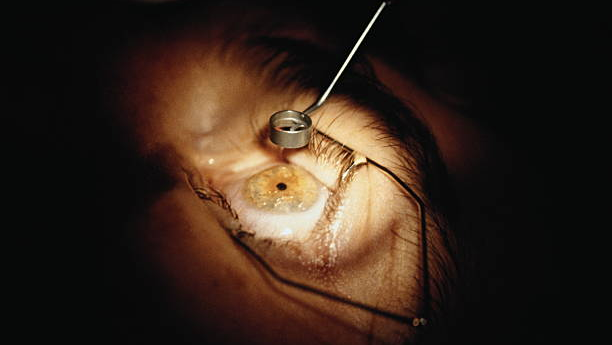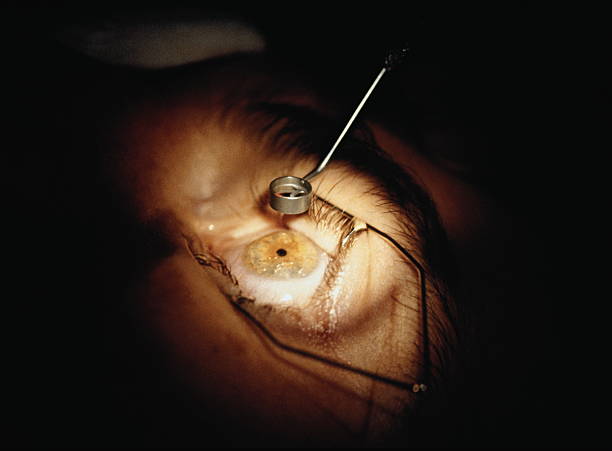Keratoconus
What is Keratoconus?
Keratoconus is a progressive eye condition that affects how your cornea refracts light onto the retina. The structure and shape of your cornea are extremely important when it comes to directing light onto the retina. If a patient suffers from keratoconus, the cornea becomes thin and starts to become very steep so it can no longer function to focus external images. In some cases the cornea can also develop breaks in the interal layers that can cause scarring. Usually, keratoconus is genetically inherited, but it may also happen because of external reasons, such as rubbing your eyes too much. At Visionary Eye Surgeons we offer comprehensive keratoconus diagnostic exams and treatments. After scheduling an appointment, our skilled ophthalmologists conduct a variety of tests to create a tailored treatment plan that works best for you and fights against your keratoconus.
Get in touch
Keratoconus Form
We will get back to you as soon as possible.
Please try again later.
Usually, patients with hereditary keratoconus begin to notice symptoms during their teenage years or in their early 20s. For patients who acquired the disorder through external reasons, they may experience symptoms at different stages of their life. Common signs associated with keratoconus include:
- Blurry vision
- Double vision (diplopia)
- Astigmatism
- Nearsightedness (myopia)
- Light sensitivity
- Difficulty seeing in dim light
- Loss of vision
Usually an inherited condition, keratoconus may also be caused by various external or environmental reasons. Patients who experience keratoconus may have acquired it through incorrectly fitted contact lenses, long-term UV ray exposure, eye allergies, and chronic eye rubbing. Men and women who have a family history of keratoconus should schedule regular eye exams to reduce symptoms or prevent the chance of long-term problems. Early detection is imperative to maintaining your eyesight and minimizing symptoms before they start to affect your quality of life.
The treatment choices for keratoconus depend on the severity of your condition and how soon it was detected. During the early stages, we can manage it effectively with prescription glasses or contacts. Because keratoconus is a chronic disorder, patients will experience additional symptoms as they continue to age. Once the condition has progressed more, patients generally require a more complex treatment because glasses or contacts no longer help with the symptoms. If needed, surgeries like corneal cross-linking and corneal transplants can treat keratoconus. Our dedicated and experienced ophthalmologists at have helped thousands of patients live more comfortably with these types of vision treatments.
Usually, patients with hereditary keratoconus begin to notice symptoms during their teenage years or in their early 20s. For patients who acquired the disorder through external reasons, they may experience symptoms at different stages of their life. Common signs associated with keratoconus include:
- Blurry vision
- Double vision (diplopia)
- Astigmatism
- Nearsightedness (myopia)
- Light sensitivity
- Difficulty seeing in dim light
- Loss of vision
Usually an inherited condition, keratoconus may also be caused by various external or environmental reasons. Patients who experience keratoconus may have acquired it through incorrectly fitted contact lenses, long-term UV ray exposure, eye allergies, and chronic eye rubbing. Men and women who have a family history of keratoconus should schedule regular eye exams to reduce symptoms or prevent the chance of long-term problems. Early detection is imperative to maintaining your eyesight and minimizing symptoms before they start to affect your quality of life.
The treatment choices for keratoconus depend on the severity of your condition and how soon it was detected. During the early stages, we can manage it effectively with prescription glasses or contacts. Because keratoconus is a chronic disorder, patients will experience additional symptoms as they continue to age. Once the condition has progressed more, patients generally require a more complex treatment because glasses or contacts no longer help with the symptoms. If needed, surgeries like corneal cross-linking and corneal transplants can treat keratoconus. Our dedicated and experienced ophthalmologists at have helped thousands of patients live more comfortably with these types of vision treatments.
Keratoconus Treatment?
Keratoconus can cause severe vision loss without proper diagnosis and care, but if detected early enough, our expert ophthalmologists can create a treatment plan that works best for you. If you suffer from symptoms associated with keratoconus, please schedule an appointment at Visionary Eye Surgeons. Please call us to learn more about the innovative treatment options we offer.
Call
Office: 780-424-2233
Fax: 780-426-7219
All Rights Reserved | Visionary Eye Surgeons | Website Created by CCC

